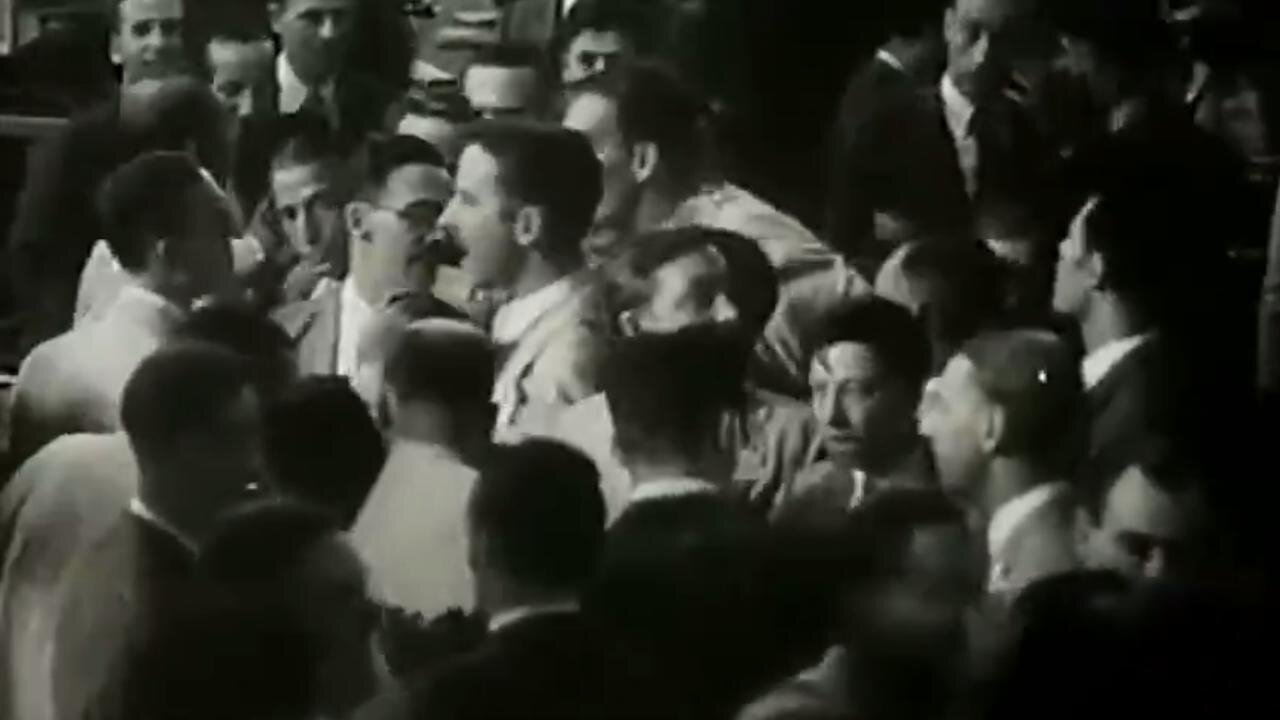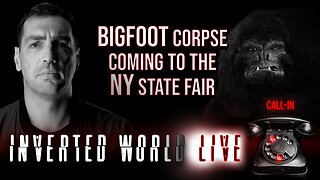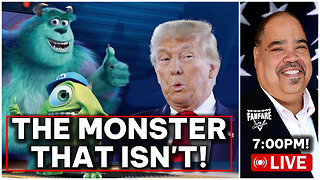Premium Only Content

The Great Crash of 1929 - Will our stocks & economy crash like this in the near future?
What Was the Stock Market Crash of 1929?
The stock market crash of 1929 began on "Black Monday, Oct. 28, 1929, when the Dow Jones Industrial Average (DJIA) plunged nearly 13% in heavy trading. While panic selling occurred in the first week, the greatest decline occurred in the following two years as the Great Depression emerged. The DJIA hit its lowest point on July 8, 1932, 89% below its September 1929 peak, defining the most significant bear market in Wall Street’s history. The market would not return to its 1929 high until 1954.
The stock market crash of 1929 followed a bull market marked by a five-year rise of the DJIA. Industrial companies traded at price-to-earnings ratios (P/E ratios) over 15, and valuations did not appear unreasonable after a decade of record productivity growth in manufacturing.
Overproduction in many industries caused an oversupply of steel, iron, and durable goods. When it became clear that demand was low and there were not enough buyers for goods, manufacturers dumped their products at a loss, and share prices plummeted.
The Federal Reserve attempted to curtail investor speculation, raising the rediscount rate to 6% from 5% in August 1929, a move that some experts say stalled economic growth and reduced stock market liquidity, making the markets more vulnerable to rapid price drops.
Public Utilities In 1929
By 1929, many electric companies were consolidated into holding companies controlling about two-thirds of the American industry. The Federal Trade Commission (FTC) reported in 1928 that the unfair practices these holding companies conducted, including bilking subsidiaries through service contracts and fraudulent accounting involving depreciation and inflated property values, were a menace to the investor. In October 1929, as new legislation was proposed to regulate the public utilities industry, the resulting sell-off cascaded through the system as investors who had bought stocks on margin became forced sellers.
Bank Failures and the Great Depression
The Federal Reserve hesitated to address the initial crash and prevent the wave of bank failures that paralyzed the financial system. As Treasury Secretary Andrew Mellon told President Herbert Hoover: "Liquidate labor, liquidate stocks, liquidate the farmers, liquidate real estate…It’ll purge the rottenness out of the system."
The crash was exacerbated by the collapse of foreign bonds. Because the demand for American exports had been supported by funds lent to overseas borrowers, this vendor-financed demand for American goods disappeared.
Legislation After 1929
The Great Depression ushered in an era of isolationism, protectionism, and nationalism. The infamous Smoot-Hawley Tariff Act in 1930 started a spiral of beggar-thy-neighbor economic policies. The lack of government oversight is regarded as a cause of the 1929 crash, with policies based on laissez-faire economic theories. In response, Congress passed federal regulations aimed at stabilizing the markets.
The Glass Steagall-Act of 1933 forced commercial banks to refrain from investment banking activities to protect depositors from potential losses caused by bank speculation. The Act also created the Federal Deposit Insurance Corporation.
The Securities Exchange Act of 1934 was created to govern securities transactions on the secondary market to ensure greater financial transparency and less fraud or manipulation.
The Public Utility Holding Companies Act of 1935 effectively dismantled the nation's biggest electric companies to limit the damage of a single company failure.
What Was Black Monday?
The great Wall Street crash of 1929 began on Oct. 28, 1929, known as Black Monday, but witnessed a further decline, such as on Oct. 29, 1929, known as Black Tuesday.
Did the Stock Market Crash in 1929 Cause a Shift in Culture During the 1930s?
The stock market crash of 1929 had a devastating effect on the culture of the 1930s. As investors, businesses, and farms lost money, they started to shutter and lay off workers. Banks closed as well. The Great Depression began in the 1930s, leading to soup kitchens, bread lines, and homelessness. The culture in the 30s shifted dramatically from that in the 20s. The 20s, known as the roaring 20s, saw a period of economic growth and consumerism after the war, while the 1930s witnessed poverty and economic decline.
What Factors Led to the Stock Market Crash of 1929?
Historians contribute a variety of factors that led to the stock market crash of 1929, such as tremendous speculation during the roaring twenties; a significant expansion of debt; a decline in production which led to a rise in unemployment, which led to a decline in spending; low wages; an agricultural sector in distress, and banks that had large loans that could not be liquidated.
The Bottom Line
Factors that led to the stock market crash of 1929 included significant market speculation, expansion of debt, a decline in production and spending, and a distressed agricultural sector. On Monday, Oct. 28, 1929, panicked investor selling led to a nearly 13% loss in the Dow Jones Industrial Average. The stock market crash was followed by the Great Depression, which lasted until World War II.
https://www.investopedia.com/terms/s/stock-market-crash-1929.asp
Video Source: https://old.bitchute.com/video/xzrvCw0MQpRp/
-
 1:07
1:07
Truths Unlimited
1 day agoHollywood star Chris Pratt addresses the intense hatred some Americans have for President Trump 8.18.25
1.6K1 -
 2:05:30
2:05:30
Side Scrollers Podcast
18 hours agoEveryone Hates MrBeast + FBI Spends $140k on Pokemon + All Todays News | Side Scrollers Live
96.5K8 -
 11:06
11:06
The Pascal Show
12 hours ago $0.46 earned'THEY'RE GETTING DEATH THREATS!' Jake Haro's Lawyer Breaks Silence On Emmanuel Haro's Disappearance!
4.67K -
 LIVE
LIVE
Lofi Girl
2 years agoSynthwave Radio 🌌 - beats to chill/game to
406 watching -
 2:19:32
2:19:32
Badlands Media
1 day agoDEFCON ZERO Ep. 005: False Flags, Cyber Fronts & Global Power Plays
140K58 -
 2:35:23
2:35:23
FreshandFit
7 hours agoWhy Black Men Don't Date Black Women Debate
32.5K33 -
 2:03:42
2:03:42
Inverted World Live
11 hours agoBigfoot Corpse Coming to the NY State Fair | Ep. 94
104K24 -
 6:16:23
6:16:23
SpartakusLIVE
12 hours ago$1,000 Pistol Challenge || #1 ENTERTAINER of The EONS Eradicates BOREDOM
80.3K2 -
 2:33:37
2:33:37
TimcastIRL
9 hours agoTrump Orders Review of Smithsonian For Being Woke & Out of Control | Timcast IRL
182K74 -
 3:09:10
3:09:10
Barry Cunningham
12 hours agoPRESIDENT TRUMP HAS TAKEN THE MONSTER AWAY FROM THE LEFT! HORROR STORIES WON'T WORK ANYMORE!
81.6K80